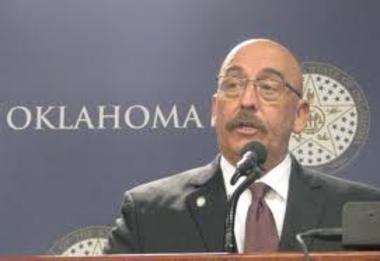A senate review by Senator Al McAffrey

We have one more week to consider House measures in the Senate then we’ll begin working in conference committees and on the budget. Just over 260 House bills were reported out of committee and because we had already worked on some of them on the floor in previous weeks, we started this week with around 215. I’m pleased to say that we were able to get through half of those measures so there are around 100 remaining on the agenda.
This week, I’d like to discuss an important issue that affects millions of Americans each month, and that’s the federal minimum wage. A constituent recently wrote me and asked why Congress was so against raising the minimum wage to a manageable level for American families. I’m afraid I don’t have an answer besides they haven’t received enough pressure from the public.
Currently, the federal minimum wage is $7.25 per hour. There are some states that have taken it upon themselves to set their state minimum wage levels higher than the federal levels including Washington, which as of this year has the highest minimum state wage at $9.19 per hour. There are also 18 other states that have set their state minimum wage at a higher level than the federal requirement. Unfortunately, Oklahoma is not among them.
This last week, national company Hobby Lobby announced that they were going to start paying full-time employees $14 per hour, and other companies are following in their footsteps.
So how is it that nearly half of all the states have realized that $7.25 per hour just isn’t a livable wage, but yet Congress hasn’t? Congress did take steps through the Fair Minimum Wage Act of 2007, which amended the Fair Labor Standards Act of 1938 to gradually raise the federal minimum wage from $5.15 per hour to $7.25 per hour. The Act raised the federal minimum wage in three increments: to $5.85 per hour in July 2007, to $6.55 per hour in July 2008 and finally to $7.25 per hour in July 2009. Unfortunately, I agree with many Americans that it was too little, too late and more must be done.
An individual living on minimum wage makes $14,500 a year, which if they don’t have any other sources of income qualifies them for food stamps. Two adults making minimum wage without any other sources of income who have a child also qualify for food stamps. Our government should do more for its citizens. They deserve better than this.
Our government sends millions and billions of dollars overseas to help other countries each year and yet they say they can’t afford to raise the minimum wage any higher. This seems to be a matter of priorities. Why would we send American tax dollars to other countries for people who don’t pay taxes in our country? It doesn’t make sense to me.
Raising the federal minimum wage would make a positive impact on our country. While it would cost our government more initially, in the long run we’d have less people applying for various types of federally- and state-sponsored public assistance including food stamps, welfare, housing assistance and other types of assistance that costs our country billions of dollars each year. We could also see less uninsured drivers as more people would be able to actually afford insurance. Though we have the federal Affordable Health Care Act now to cover a majority of uninsured Americans, raising the minimum wage could have also helped these individuals be able to afford health care.
Now I realize this would put a financial strain on some smaller businesses but, again, in the long run, it would benefit them as their employees would be happier. I also think it would be easier for employers to find good workers because individuals would be happy to make more money.
Raising the minimum wage would be good for American families and good for our economy.
If you have any questions or comments, I can be reached by email atmcaffrey@oksenate.govor by phone at (405) 521-5610. You can also write me: Senator Al McAffrey, State Capitol, 2300 N. Lincoln Blvd. Room 527A, Oklahoma City, OK, 73105.





